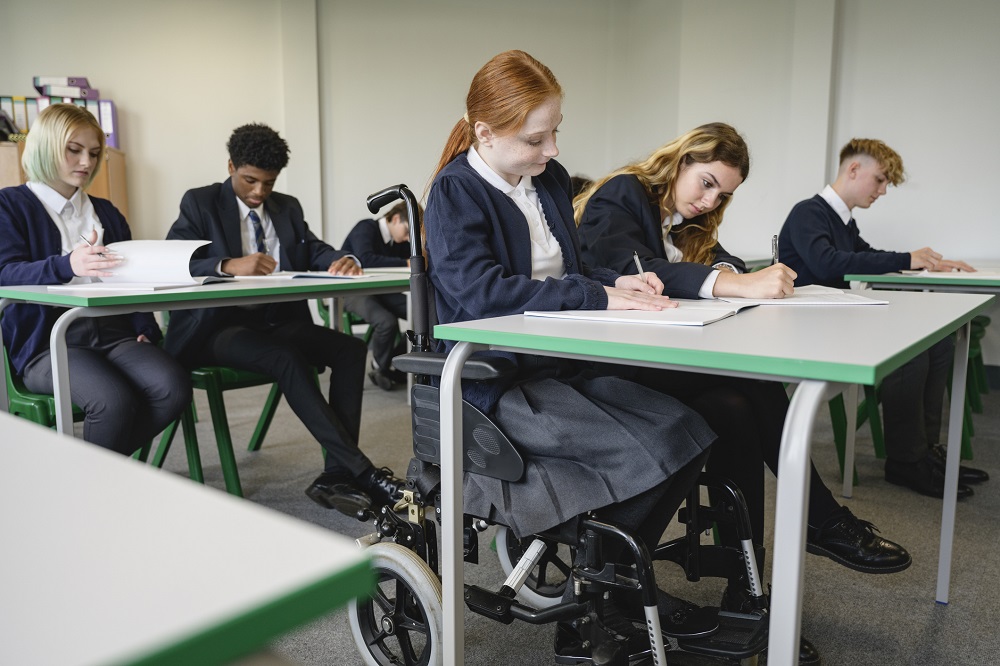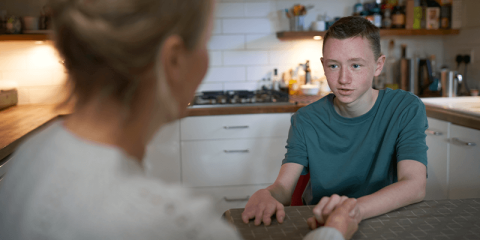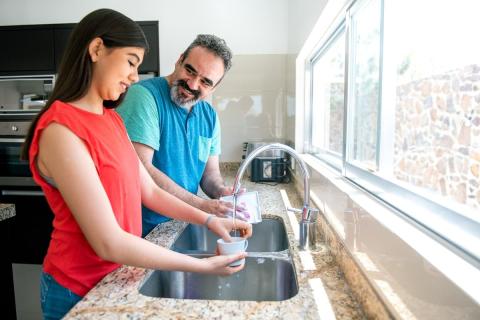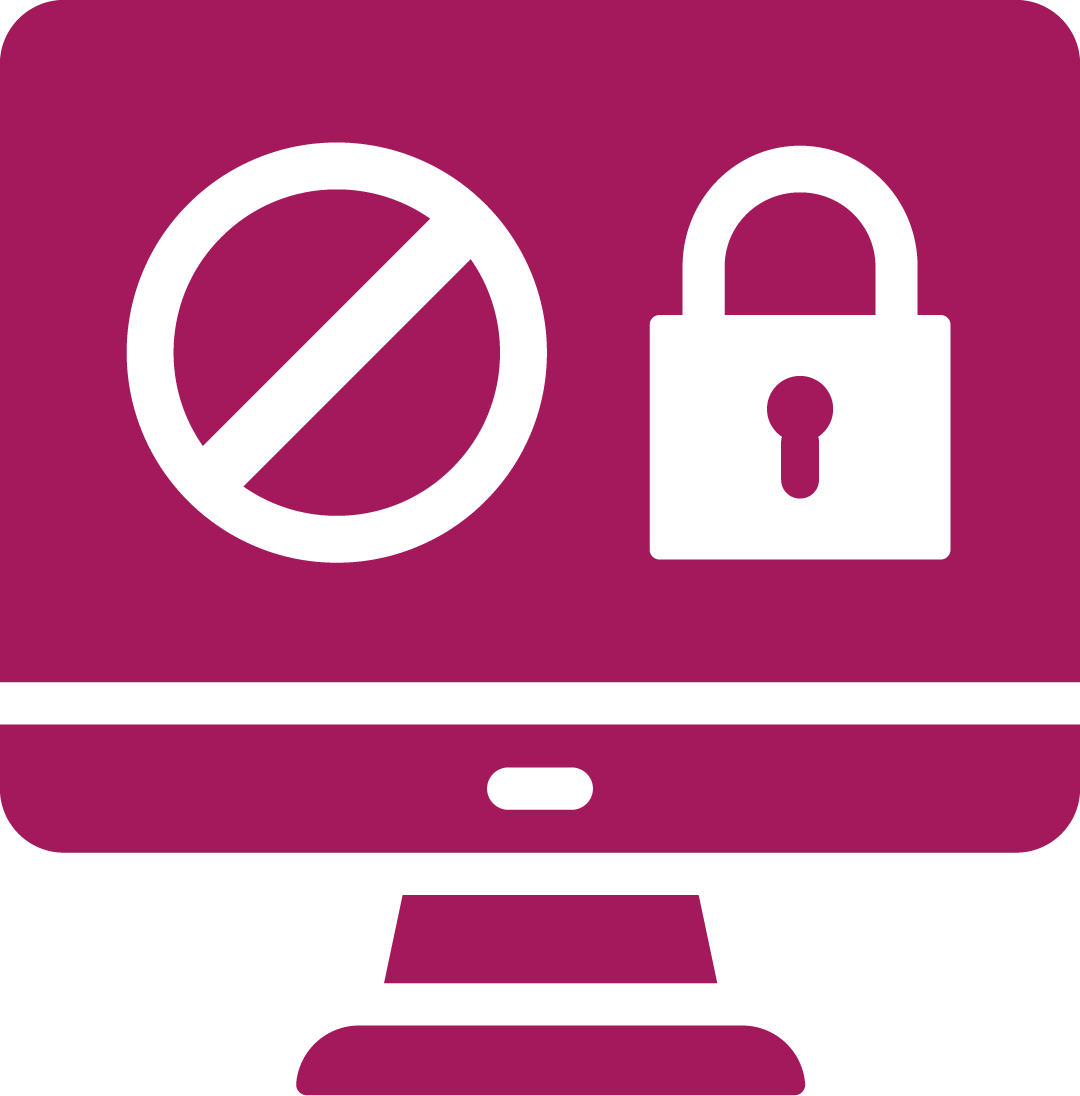If your teen gets the results they were hoping for, congratulations! But if things don’t go their way, it’s not the end of the world. Here are some tips for supporting them and helping them to move on, no matter what their results.
Before results day
Before they get their results, remind them that you’re proud of them and are there for them, no matter what grades they get. Encourage them to talk to you about how they’re feeling (our page on talking and listening to your teen has tips for this) and reassure them that you’ll always support them to make decisions moving forward.
Tips if your teen doesn’t get the results they wanted
Tip #1: Keep calm and give yourself time to respond
If they’re disappointed, you may well be disappointed too. Try to take some deep breaths and stay calm. It may help if you both have some time to think about what you’re going to say and do next. In this case it’s fine to let them know you love them and are there for them, and suggest you discuss next steps later on.
Tip #2: Suggest they stay off social media for the day
Even if your teen’s grades are good, they may be disappointed if they feel their friends have done better. So it’s a good idea to encourage them to stay off social media on results day, so they don’t end up comparing themselves to other people.
Tip #3: Celebrate anyway
As long as your teen’s happy about it, take the opportunity to celebrate their hard work and all the other things that make them special. Maybe you could make their favourite meal, or have a trip to the cinema.
Tip #4: Remind them it's not the end of the world
Exams aren’t everything, and there are lots of things they can do to move forward. They may be able to re-sit their exams or appeal their results. If they didn’t get the results they needed for a university offer, they may be able to take a gap year and apply again, or find another place through ‘clearing’ – this is the system universities and colleges use to fill empty spaces on courses.
Have a look at the sections below on ‘Getting advice’ and ‘Next steps’ for some helplines and websites that can help.
Tip #5: Talk to the school
Remember you can always ask your teen’s school to help them explore any possible next steps, such as re-takes, appealing or alternative courses at college or university.
Tip #6: Be sensitive to their feelings
If your teen’s disappointed with their results, they might not want you talking about them to family and friends. So it’s a good idea to agree in advance what you’ll tell people if they ask.
Tip #7: Avoid 'I told you so'
If you’re concerned that your teen didn’t work as hard as they could have, now isn’t the time to tell them! Instead, encourage them to think about what they can learn from this experience, and what their next steps will be.
Getting advice
When your teen receives their results, they may have questions about what this means for their future.
They can find out more about this and what to do if they want to appeal on the SQA website.
- You could also suggest they call the Skills Development Scotland Results Helpline on 0808 100 8000. This year’s helpline will open 6-7 August, 8am-8pm and 8-9 August, 9am-5pm.
- Young.scot also has lots of advice for teens if they have questions about their results or didn’t get the grades they were hoping for.
- Childline has advice for teens on next steps and helping themselves to feel better about their results.
Clearing
If your teen was planning on going to university but has found themselves without a place they'll be eligible for Clearing via UCAS. Students can apply for a course using Clearing if they:
- haven’t received any offers and are not already holding an offer from a university or college.
- didn’t get the grades for their firm or insurance choice.
- have changed their mind and no longer want to go to their firm choice and the course they're now interested in still has places.
- are applying after 30 June.
Next steps
There are many different pathways available in school to give your teen skills for life, work or further study. When they turn 16, instead of staying at school, your teen may choose to go to college instead. Your local college website will have more information on some of the options available for your child to continue their learning journey.
Encourage your teen to look forward to their next steps, whether that's continuing with school, going to college or university, securing a Foundation Apprenticeship, Modern Apprenticeship or other work-based training, or getting a job.
Check out these websites together for more information and advice:
- Your teen is going through some big changes and making important decisions in the preparation and transition into post school life. My World of Work offers a helpful School Leavers Toolkit to support them as they make the move into the post-school world. The Toolkit covers a range of topics including mental well-being, work and pay, finances, moving out and housing options, community involvement and young people’s rights.
- The Young Person's Guarantee is a commitment to bring together employers, partners and young people. It aims to connect every 16 to 24 year old in Scotland to an opportunity. This could be a job, apprenticeship, further or higher education, training or volunteering.
- Skills Development Scotland offers advice, information and support on education, employment and career choices for young people and their parents and carers.
- Skills Development Scotland also has a dedicated section for parents and carers on its career website My World of Work. It offers information to help those career conversations with your young person, understand skills in demand from employers, and suggests ways to explore the different routes and pathways that young people can take.
- The MyGov.scot website has more information on your teen’s options when they leave school.
 Activities & Play
Activities & Play Behaviour
Behaviour Childcare
Childcare Development & Growing Up
Development & Growing Up Family, Friends & Relationships
Family, Friends & Relationships Feeding Your Baby
Feeding Your Baby Food & Eating
Food & Eating Health & Safety
Health & Safety Mental Health & Wellbeing
Mental Health & Wellbeing Money & Work
Money & Work Online Behaviour & Safety
Online Behaviour & Safety Pregnancy & First Days
Pregnancy & First Days School & Education
School & Education Sleep
Sleep







 Mental Health & Wellbeing
Mental Health & Wellbeing
 Online Behaviour & Safety
Online Behaviour & Safety